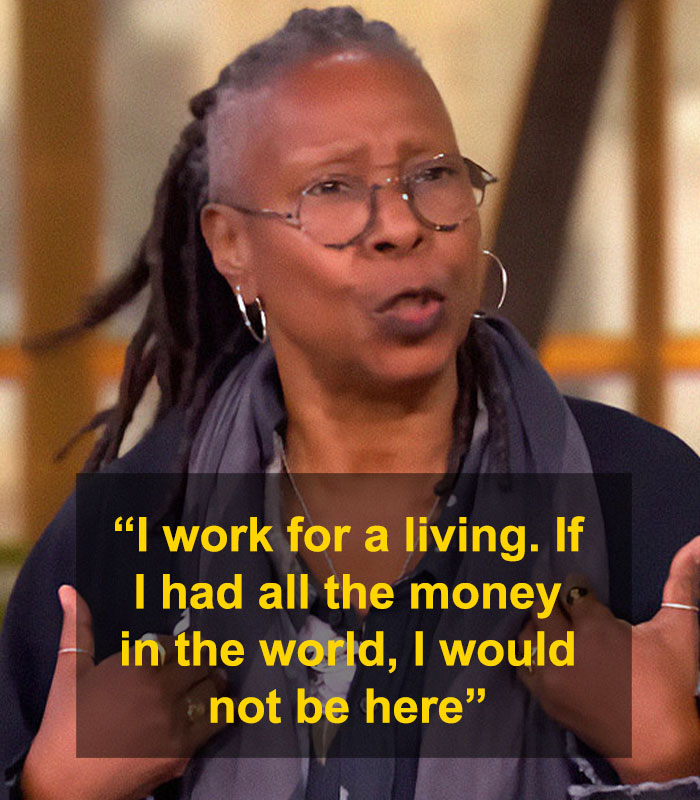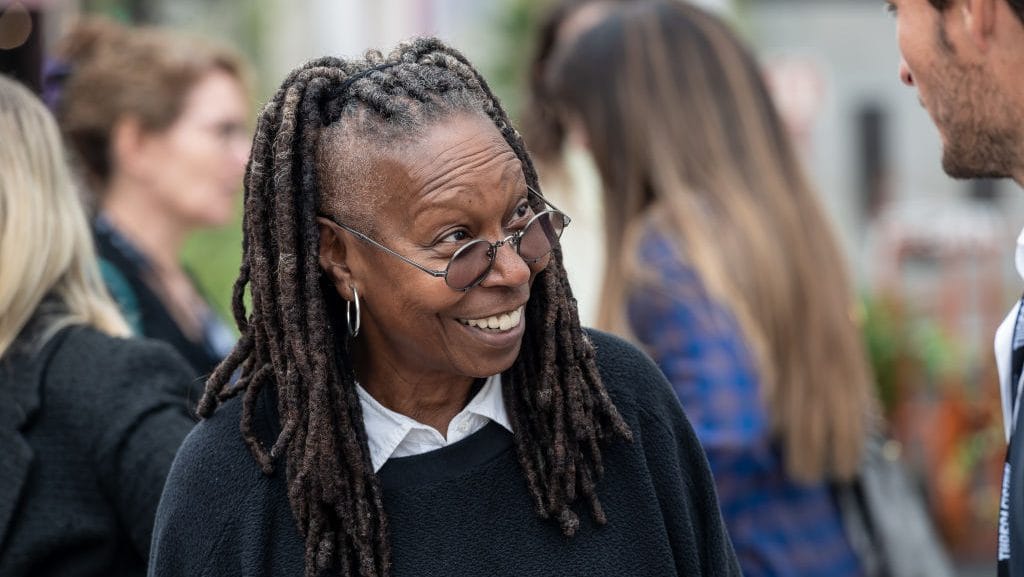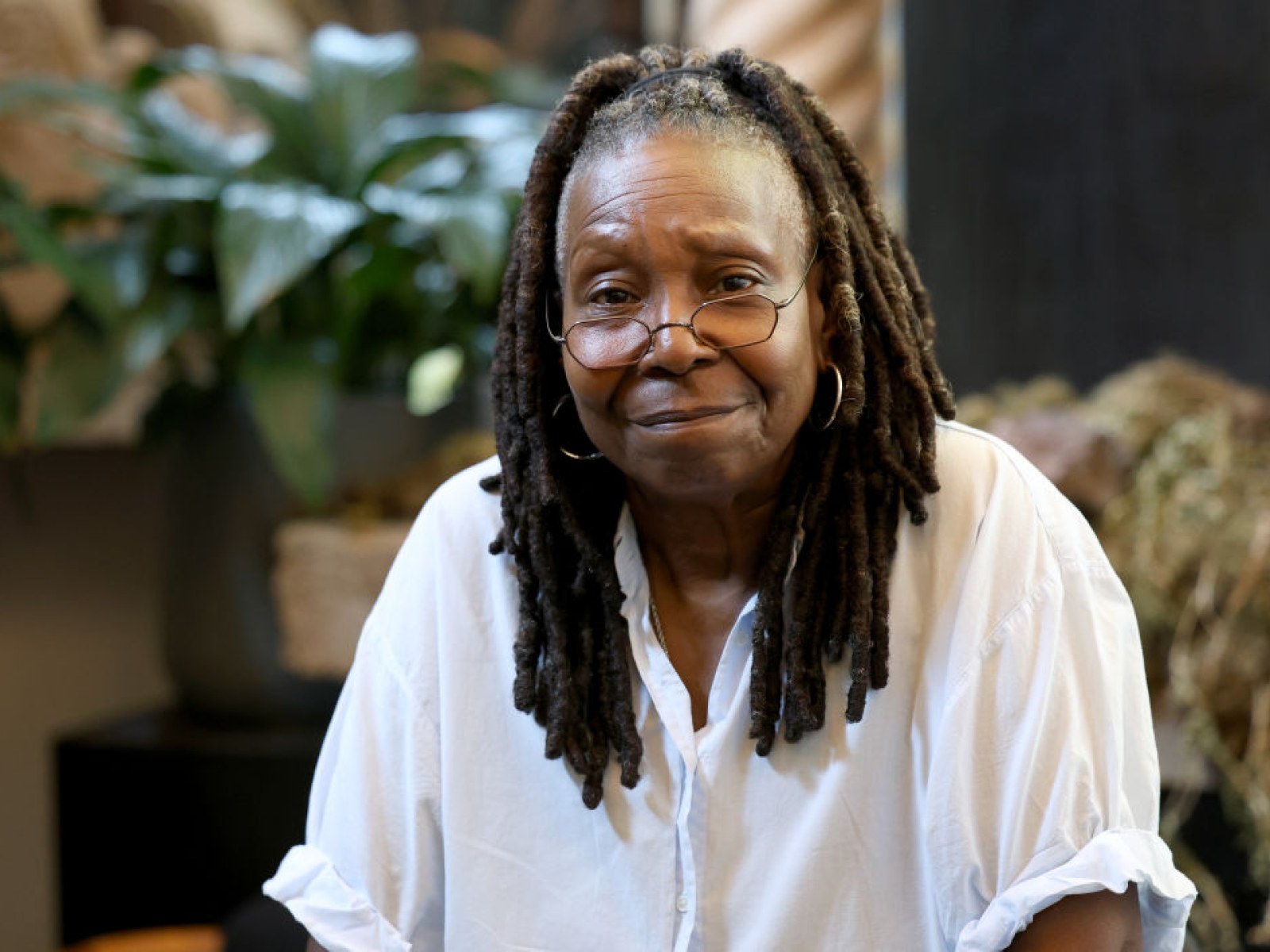Whoopi Goldberg Says She’s Having A ‘Hard Time’ Financially: ‘I’m A Working Person!’

In a candid conversation on a recent episode of “The View,” Whoopi Goldberg opened up about her financial struggles, shedding light on the challenges faced by many working-class Americans today. Her comments resonate deeply within a political landscape where there is frequently a disconnect between leaders and the everyday experiences of citizens. Despite her celebrity status, Goldberg revealed that she is not exempt from financial difficulties, stating, “If I had all the money in the world, I would not be here.” This provocative statement not only illustrated her current circumstances but also underscored a broader narrative about the realities of working individuals across the nation.
The Disconnect Between Leaders and the Working Class

Goldberg’s reflections came during a discussion spurred by Rep. Alexandria Ocasio-Cortez’s insights into the complexities of voter support for Donald Trump. While acknowledging their reasons for backing Trump despite also favoring Democratic candidates, the co-hosts attempted to unravel the intricacies of such political alignments. However, it was Goldberg’s admission that captured viewers’ attention. She emphasized that politicians often overlook the struggles of working people, many of whom face genuine financial hardships every day.
Goldberg’s struggles were poignantly highlighted when she pointed out the risks associated with the policies of political figures like Trump. While she acknowledged that many individuals feel a sense of connection to Trump, she also noted that his proposed policies could adversely affect a larger segment of the voting public. This commentary raises important questions about perceptions and economic realities in modern America, particularly as upcoming elections approach.
A Call for Empathy and Understanding

In response to Goldberg’s comments, co-host Sara Haines expressed her confusion about why so many working-class citizens view Trump as an ally. Haines pointed out the apparent contradiction between the struggles of everyday Americans and Trump’s political rhetoric. Ana Navarro also weighed in, suggesting that many voters feel increasingly isolated from high-profile leaders like Vice President Kamala Harris. The scrutiny around these sentiments raises a vital discussion about empathy in political leadership and the importance of connecting with individuals who are not part of the political elite.
Goldberg’s remarks have sparked a dialogue about the necessity for political figures to engage more meaningfully with the experiences of those earning less than $100,000 per year. This sentiment echoes the thoughts previously expressed by former co-host Meghan McCain, who emphasized to her peers the importance of understanding the backgrounds and realities faced by a substantial portion of the American populace. While it is easy for political leaders to relay abstract ideas and policies, the lived experiences of average citizens must be at the forefront of any impactful political discourse.
Implications for Future Elections

As discussions about financial strains and political affiliations evolve, it becomes crucial for voters and leaders to listen to each other. Goldberg’s forthrightness highlights the significant role of empathy in bridging the divide between leaders and their constituents. As the nation gears up for future elections, understanding the everyday issues that weigh heavily on the minds of working-class citizens will be essential for political engagement and voter turnout.
The conversation sparked by Goldberg continues to resonate, as many Americans seek to be heard and valued in the political arena. It serves as a reminder that regardless of a person’s status, the need for financial stability and empathy is universal. As the path to the ballot box approaches, we must remember that understanding one another’s experiences is vital for fostering a more inclusive political landscape.

If you resonate with Whoopi Goldberg’s sentiments and want to share your experiences or join the conversation about the working class’s challenges, engage with us on social media or leave a comment below. Your voice matters!






